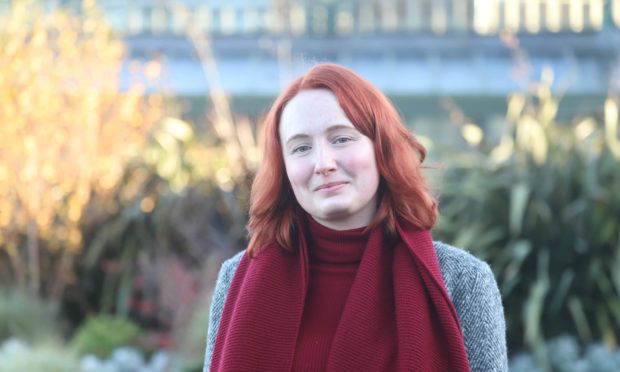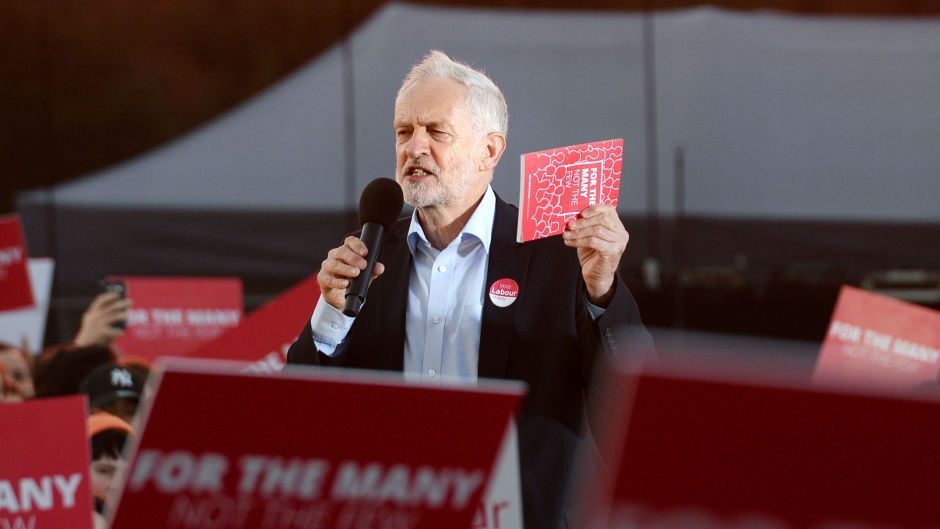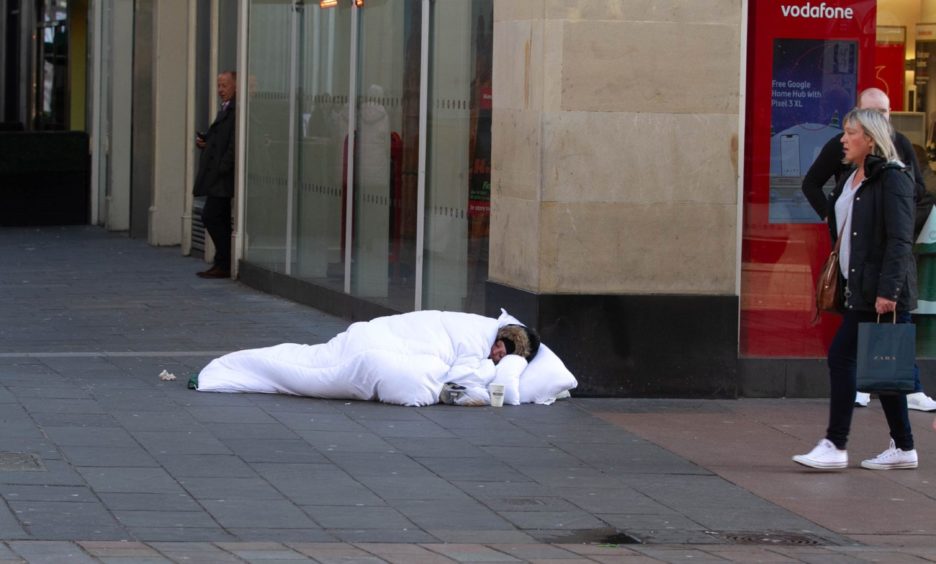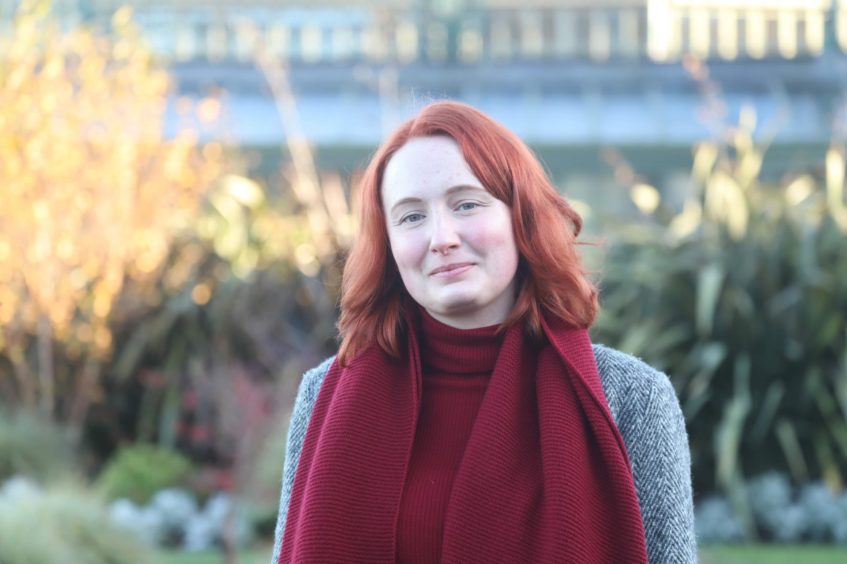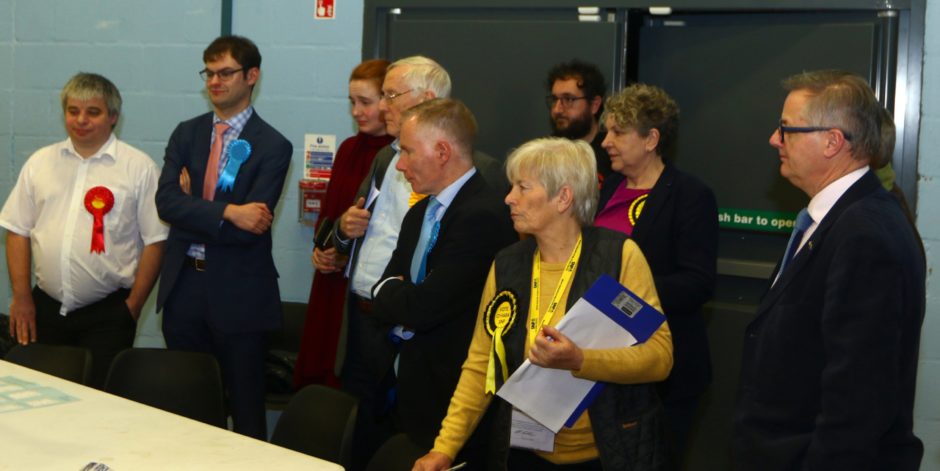Rhea Barnes is not among the band of Labour figures who downplay their support for Jeremy Corbyn now that the left-winger is no longer party leader.
“I wear that badge with pride,” she laughed, when asked if she would still describe herself a “Corbynista”.
In fact, the Strathclyde University law student would go as far as to name the long-serving Islington North MP as her political hero.
“I’m probably going to get slated for this but, honestly, I would say Corbyn, because of the amount of abuse the man has received and the fact he has remained dignified, and it has never really descended into mud-slinging within him,” she said.
It was the election of Mr Corbyn as Labour leader in 2015 that set her on a path to standing as the Labour candidate in her home seat of Argyll and Bute in 2019.
Corbyn ‘more honest politician than most’
“Admittedly, up to that point I had held almost a disdain for it, because I’d always seen Labour as more neo-liberal, and not really representing real life, and a bit hypocritical, really,” she said.
“But as I was talking more and more with a circle of friends about the situation and what was going on in Paisley, I decided, and it really was in line with Corbyn’s election as leader, to start attending some of the local meetings, just to see what it was about.
“I kind of kept quiet and at the back of the meetings, just to see what was being said.
“It was my first foray into any kind of political activity, but I really enjoyed listening to what people had to say, and to be able to use it as a forum for ideas and discussion, and that was something that really appealed to me.”
She added: “I saw him (Corbyn) being a more honest politician than most of them out there at the time, and it was getting to that point that we were getting deep into the Tories at that point and I thought, ‘I need to do something, I can’t just sit down and complain’.”
Focus on trying to help people
As well as becoming more active in Labour, Ms Barnes decided to apply to work at the university law clinic.
“Whereas before I was quite angry about things, I started to become more focused and more driven to try to make change. I wanted to focus my energy to try to help people,” she said.
Ms Barnes’ interest in helping others first manifested itself at an earlier age.
Her father’s job as an engineer in the oil and gas industry meant that the family lived in Aberdeen until she was about five, at which point they moved to the west coast to be nearer her mother’s side of the family in Argyll, and the village of Taynuilt became home.
“I enjoyed growing up there – it’s a bit of a charmed existence, growing up in the countryside, but it was good, it was, really, always out in the fresh air and the like,” she said.
After a spell in school in Oban, her parents moved her to the Lomond independent school in Helensburgh, and then she spent a year studying at the London College of Fashion, before moving to Glasgow.
“I kind of felt a bit like a fish out of water a little bit. It’s a big city and I was very young at the time, and I just didn’t really like it,” she said of London.
It was with Ms Barnes’ move to Glasgow that her politics began to be shaped by her surroundings.
“Just after I left London, the Tories got voted in with the coalition. At the time I wasn’t really tuned into it, but I started to notice the effects in the years that followed, really quickly, in the area I was living,” she said.
“I was living in the east end of Glasgow and you started seeing a lot of community projects getting cut and funding withdrawn, and I knew a lot of friends who worked in the arts field as well, and they had all their funding cut.
“I just started to notice more and more homeless people as well on the streets. It seemed more now.
“It was just kind of gradually that I started to put the pieces together and form my views based on what was going on around me at the time.”
I’ll be honest, I had a quite privileged, middle-class upbringing, my parents having the ability to send me away to school and stuff, and I’m thankful for that.”
She added: “I’ll be honest, I had a quite privileged, middle-class up-bringing, my parents having the ability to send me away to school and stuff, and I’m thankful for that.
“But I think I had kind of been, up to a point, insulated from a lot of what had been going on, and eventually, when I left university, I didn’t really get any help from my parents, so I went out and got a job and worked in hospitality and retail.
“And you start to realise that a lot of the time, if you fall on hard times, there is no help, and there was increasingly less help.
“I remember one time, I didn’t want to ask my folks for help because I didn’t want to admit I was struggling, and I ended up having to rely on crisis loans until my wage came in, and that was a real shock to me.”
‘Frustrated’ by aspects of Yes campaign
Ms Barnes voted for Scottish independence in the 2014 referendum, but became “frustrated” and “disillusioned” with aspects of the Yes campaign and the SNP.
“I wanted to get a roof over people’s head’s first, and make sure everyone is okay, and then I’m happy to talk about independence at that point,” she said.
A move to Paisley, around the time of Mr Corbyn’s election as leader, led to a growing involvement with Labour, but she never expected to run for election.
“It was a weird situation, actually. I had no aspirations to do it, honestly,” she said of her candidacy at last year’s general election.
“It was a friend of mine who mentioned it, who was a member of Argyll and Bute Labour CLP. He mentioned to me that they were looking for a candidate and they would prefer if it was female.
“My partner pushed me to go for it. He said, ‘you care about people and you always say you want to make a difference, and this is a great way to do that, to try to have a positive impact’.”
It was interesting. I realise it was an extremely serious thing, but it was good fun and a great experience.”
Labour has never won the Argyll seat and Ms Barnes was unable to pull off a shock victory, but she enjoyed the contest nonetheless.
“It was interesting. I realise it was an extremely serious thing, but it was good fun and a great experience,” she said.
“I got to meet so many people, with so many different views and opinions, that I never would have got to meet.”
Kieron Green, secretary of the Argyll and Bute Constituency Labour Party, said her “enthusiasm and commitment shone through” during the campaign.
He added: “We were fortunate indeed to have her as a candidate locally and it was great to see how she more than held her own in hustings alongside those with many more years of experience standing in elections.
“I have no doubt that she has the potential to ably represent at the highest levels of politics in the future.”
Future direction of Labour a key factor
Ms Barnes would be keen to try again one day, but said much would depend on the direction of post-Corbyn Labour.
She said: “It just really depends on how Labour goes as a party. If they start to move more to the centre again…
“The only reason I decided to stand when I did was because I believed in what was being put forward, and I like to think of myself as a straight-forward person, in that regard.
“And if the views are not aligning with mine, I won’t stand there and pretend as if I do agree – I tend to just say what I mean and mean what I say.
“It really just depends. I don’t want to not ever have anything to do with politics again, because I really did enjoy it.
“But I’ll just have to see how things develop over the next wee while.”
